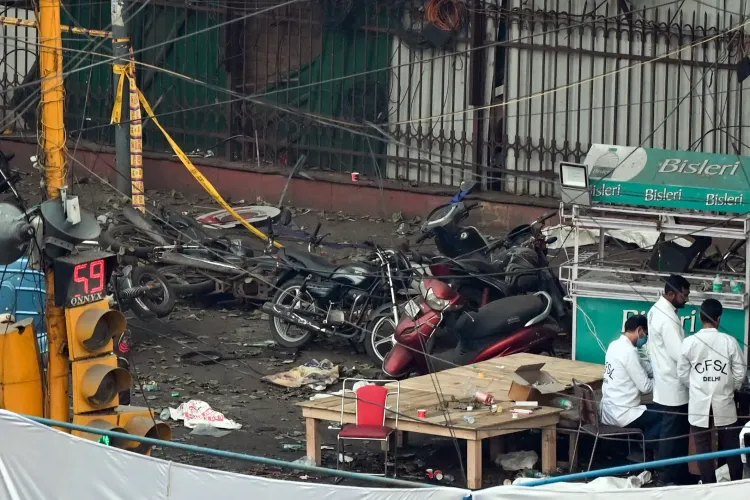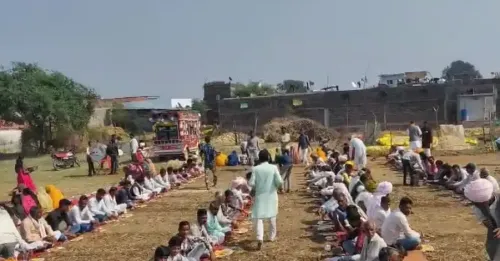Are Invisible Modules a Visible Threat? Red Fort Blast Investigation Shifts Focus to Conventional and Online Anti-Radicalization Tactics

Synopsis
Key Takeaways
- Enhanced electronic Intelligence is essential for detecting local terror activities.
- The Faridabad module operated undetected for nearly three years.
- Agencies are shifting focus to dismantling local modules nationwide.
- Online radicalization programs are a growing concern.
- Fact-checking propaganda is critical in countering terrorism.
New Delhi, Nov 19 (NationPress) In the wake of the Red Fort explosion, high-level security discussions have commenced to reassess strategies. One focal point during these discussions was the necessity to enhance electronic Intelligence to identify local terrorist activities.
This concern arose as investigations into the Red Fort blast uncovered that members of the Faridabad module managed to evade detection for nearly three years.
This module was established and the strategy for a series of attacks in and around Delhi was formulated three years ago. Since then, the individuals involved, primarily led by medical professionals, successfully concealed their operations, avoiding scrutiny from security agencies.
Electronic Intelligence can effectively monitor cross-border movements. However, local modules often lack any electronic traces, making it challenging for intelligence agencies to track their actions. This is a significant reason why the Faridabad module could operate undetected.
While agencies can gather data on cross-border activities through electronic Intelligence, most interactions among members of the Faridabad group remained internal. Although they occasionally communicated with individuals in Jammu and Kashmir, this does not qualify as cross-border activity.
Recently, the Gujarat ATS apprehended a medical representative from Hyderabad who was allegedly producing Ricin under instructions from a contact in Pakistan. His capture was facilitated by electronic intercepts from across the border.
In light of these events, security officials are now prioritizing the identification and dismantling of modules nationwide. One official emphasized the importance of reverting to traditional methods to dismantle these unconventional groups. However, vigilance regarding Kashmir remains crucial, as the ISI aims to recruit locals from the Valley for broader operations.
The Faridabad module case illustrates Pakistan's strategy to divert attention from Jammu and Kashmir towards the hinterland. This necessitates a significant alteration in security tactics and enhanced collaboration among various agencies dealing with terrorism.
While dismantling these modules is vital, agencies also intend to increase efforts against online radicalization programs. With many youths being influenced via social media, officials state that immediate action is essential to counter this propaganda propagated by Islamist terrorist organizations.
Terror groups have historically used misinformation and deceit in their campaigns. Agencies cannot always intercept such propaganda at the source, prompting a decision to bolster manpower for fact-checking any misleading information that may circulate publicly.
Officials note that propaganda concerning India often revolves around portraying a narrative of Muslim victimhood. This narrative serves as a pivotal element in radicalization, making it imperative to fact-check such claims to mitigate the threat of successful recruitment efforts.









